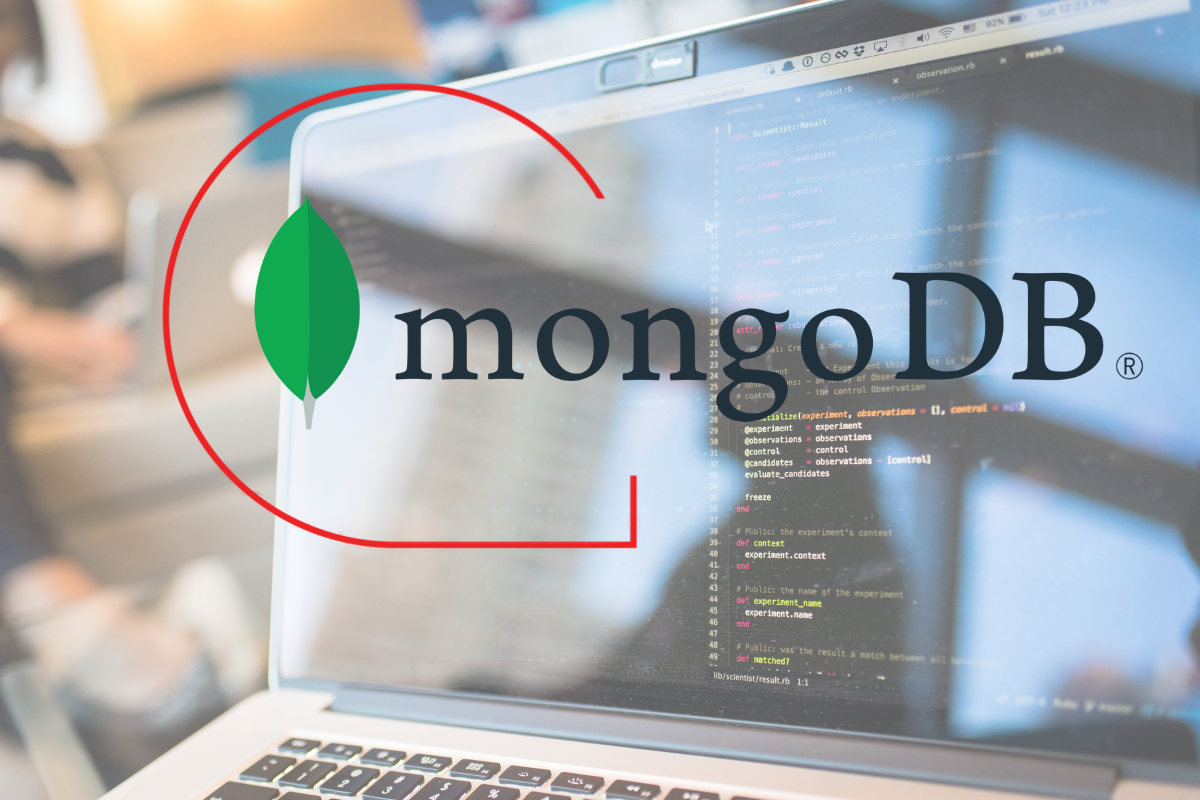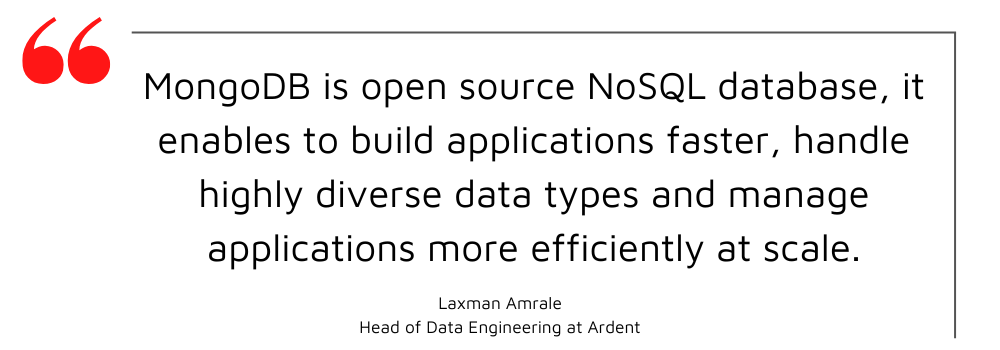MongoDB for back-end development
9 December 2022 | Noor Khan

MongoDB is one of the leading NoSQL, document-based database technologies. According to Enlyft, there are over 35,00 companies worldwide that are using MongoDB including world-leading brands such as eBay, Toyota and Forbes. MongoDB has a market share of approximately 45.11% in the NoSQL Database category, competing with other technologies such as NoSQL (22.73%) and Amazon DynamoDB (9.55%) as highlighted by Slintel.
In this article, we will look at MongoDB for back-end development, what it has to offer and the key benefits.
What is MongoDB?
MongoDB is a non-relational Database Management System (DBMS). MongoDB enables organisations to easily and effectively organise their large volumes of unstructured data in one place. MongoDB is the alternative to the traditional data approach of using tables and rows, instead, it makes use of a collection of documents. It is ideal for organisations that have large volumes of varied, unstructured data.
MongoDB for back-end development
MongoDB is one of the leading back-end technologies for application development. With a dynamic schema, highly scalable and high-performing nature, it is the ideal choice for many applications.
MongoDB for data warehousing: Key benefits
Open source
MongoDB is free to get started with as it is an open-source technology. However, as your needs and requirements evolve you will need to pay licensing fees.
Highly scalable
Offers scalability with both horizontal and vertical scaling. Therefore, MongoDB can be an ideal choice of database technology if you have scalability as a key goal.
Great performance
Compared to a traditional relational database such as Ms SQL, it offers a high level of speed and performance. With Sharding, it enables data to be divided in shards for processing simultaneously across multiple servicers, speeding up the process.
Flexibility
As MongoDB is suitable for structured and unstructured data, it can offer flexibility as it stores both. Additionally, with it being schema-less you have the ability to store an increased variety of schema-less data.
MongoDB for data warehousing: Limitations
Although MongoDB offers significant benefits, there are some limitations to consider and they include:
Memory usage
MongoDB requires a high level of memory storage as it can pose challenges with duplicate data which means memory storage is not optimised.
Duplicate data
Duplicate data can cause multiple challenges for organisations, as it makes data management difficult. With MongoDB duplicate data is cited as an issue.
Data size and storage
You are limited to 16MB per document, therefore this would not be suitable for any data that is bigger.
MongoDB use cases
There are many well-known brands that have employed MongoDB to create powerful applications, from Vodafone building cloud-native apps to Boots using it for their microservices app. Here at Ardent, we have used MongoDB for a number of our client projects, here is a look at some of them.

“MongoDB is open source NoSQL database, it enables to build applications faster, handle highly diverse data types and manage applications more efficiently at scale.” – Laxman Amrale – Head of Data Engineering at Ardent.
Back-end technology of choice for service quality management software
When it came to choosing the back-end technology for service quality management software that is used for IT projects, MongoDB was the ideal solution due to it being a non-relational database. The software was packed with helpful features such as email integration, user-friendly AG grid and document storage to offer the end user the complete solution to managing their projects.
Read the full story of how our expert software engineers built sophisticated, resourceful service quality management software.
A complete recruitment software hosted on the cloud
The Ardent highly skilled software development team delivered highly functional and flexible recruitment software which enabled our clients to offer this end clients a complete solution. Some key features include email integration, document management, access control and much more.
Read the full story on getting the job done with exceptional recruitment software solutions.
Ardent and MongoDB partnership
MongoDB is an Ardent technology partner as it is one of the world's leading open-source technologies. Many of our highly skilled data engineers are proficient in MongoDB and have acquired various certifications to demonstrate their expertise. If you are looking to leverage the power of MongoDB for your next project we can help. Alternatively, you bring us your challenges and we can work together to find the right solution for you built with technologies that will ensure you meet your goals and objective.
Explore our open-source partnerships, or get in touch to find out more.
Ardent Insights

Are you ready to take the lead in driving digital transformation?
Digital transformation is the process of modernizing and digitating business processes with technology that can offer a plethora of benefits including reducing long-term costs, improving productivity and streamlining processes. Despite the benefits, research by McKinsey & Company has found that around 70% of digital transformation projects fail, largely down to employee resistance. If you are [...]

Stateful VS Stateless – What’s right for your application?
Protocols and guidelines are at the heart of data engineering and application development, and the data which is sent using network protocols is broadly divided into stateful vs stateless structures – these rules govern how the data has been formatted, how it sent, and how it is received by other devices (such as endpoints, routers, [...]

Getting data observability done right – Is Monte Carlo the tool for you?
Data observability is all about the ability to understand, diagnose, and manage the health of your data across multiple tools and throughout the entire lifecycle of the data. Ensuring that you have the right operational monitoring and support to provide 24/7 peace of mind is critical to building and growing your company. [...]






